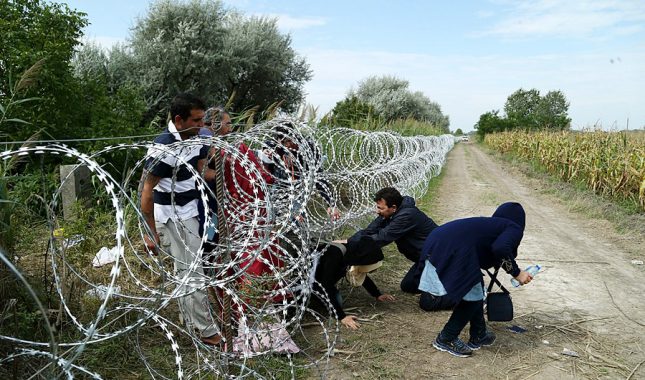Transformative Borders and the Politics of Mobility in Western Liberal Democracies
This is not a public seminar
| Date | 14 - 15 March 2018 |
| Event Organizer | Prof. dr. Maartje van der Woude (Leiden Law School) & Prof. dr. Richard Staring (Erasmus University Rotterdam) |
| Location | Leiden Law School, Steenschuur 25, Leiden |
Intensified global flows of information, images, goods, people, finances and capital have led to what has been termed a world in motion. As Gundhus & Franko note, because of globalization, “states are faced with recurring forms of state ‘blindness’ due to the intensification of movement to their territories” (Gundhus & Franko 2016: 497) As a result, many Western liberal democracies are increasingly seeking ways to police mobility and migration across national borders. Interestingly enough, in the area that takes pride in being “borderless” and the principle of free movement – the Schengen Area – the notion of bordering seems to be front and centre in many public and political discussions on how to best deal with the continuous migration from the Global South to the Global North.
Traditionally, the state is regarded as the holder of exclusive authority over the entry of non-nationals. Controls at physical borders carried out by state agents are therefore (still) an important remedy at hand for the management of mobility of persons and goods across the national border. This rests on the (fictional) assumption that borders are a good barrier against crime and irregular migration. Yet as a result of a wide range of non-traditional social control agents increasingly becoming pulled into tasks of sorting out who belongs and who does not, borders and border controls are also depicted as being ‘everywhere’ or at least outsourced far beyond the actual physical border (Guiraudon & Lahav 2000; Pickering & Weber 2013; Ambrosini & Van der Leun 2015). The net of bordering practices tends to consist of several private and public ‘nodes’ that together constitute a complex layered network of borders, bordering practices and of citizenship statuses (Mezzadra & Neilson, 2013). Other than what’s commonly seen as the main function of borders, this multiplicity of discrete bordering practices aren’t so much meant to stop people, but more so to filter between and channel through them: to make a distinction between ‘bona fide’ global citizens and ‘crimmigrant others’ (Franko 2011; Franko 2013; Barker 2012; Van der Woude & Van Berlo 2015). The travel ban that was recently approved by the United States Supreme Court is illustrative of the notion of filtering between those travelling from “good” versus those traveling from “bad” countries.
In this seminar, we invite participants to reflect upon the transformation of borders as well as the transformative effects of borders. As borders can be seen as important regulatory devices, regulating not only who belongs and who does not, but also instruments to interrupt, delay and speed up mobilities (Mezzandra & Neilson, 2013), borders and bordering practises also potentially have a transformative impact on those involved in or subjected to these practices. In doing so, we also encourage participants to reflect and possibly elaborate upon the irreconcilability of current bordering practices, whether happening at the physical border or beyond, with the high humanitarian standards many Western Liberal Democracies claim to uphold.

The seminar is made possible by funding from The Netherlands Organisation for Scientific Research (NWO) and the LDE Center for Safety and Security


